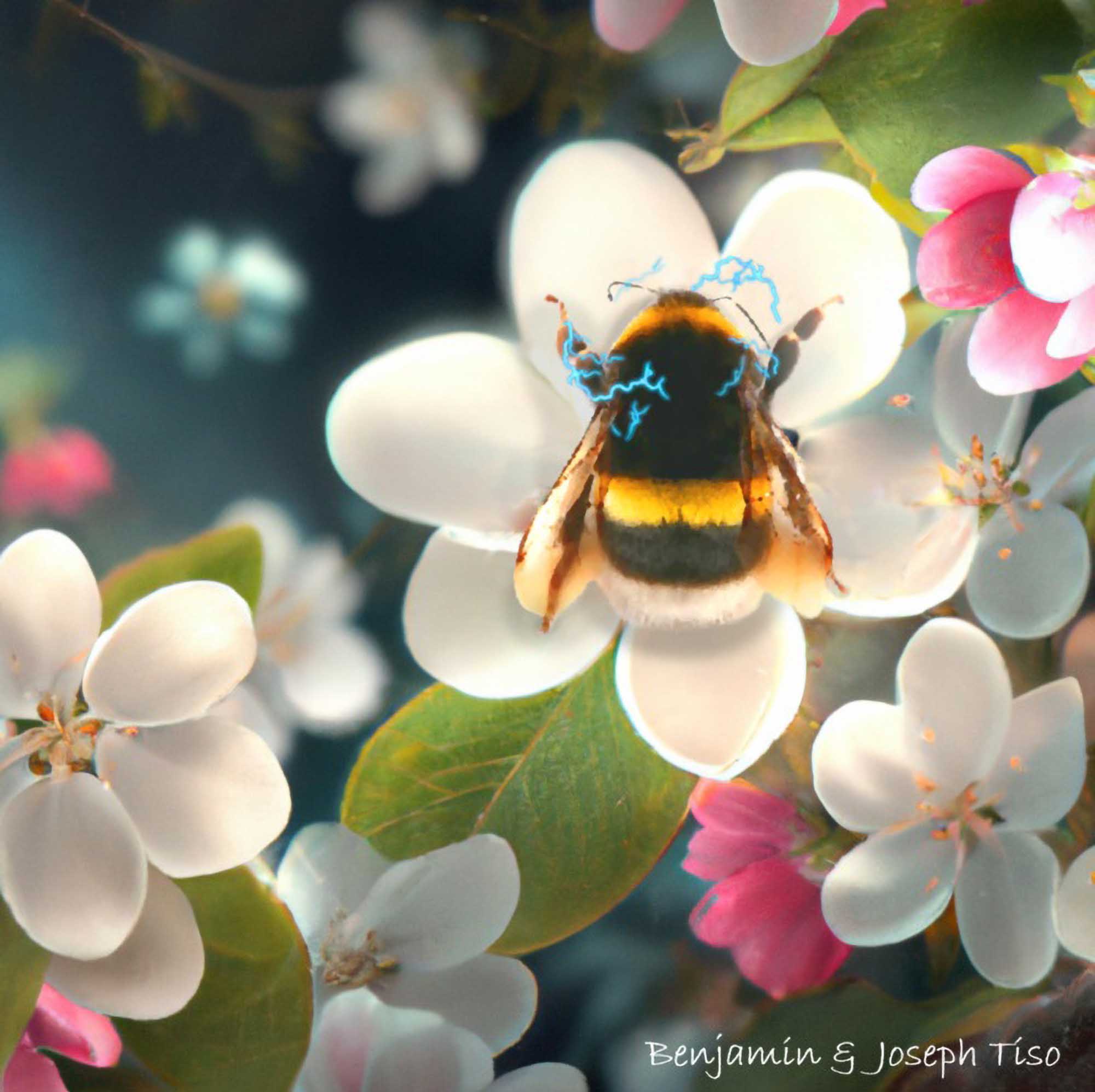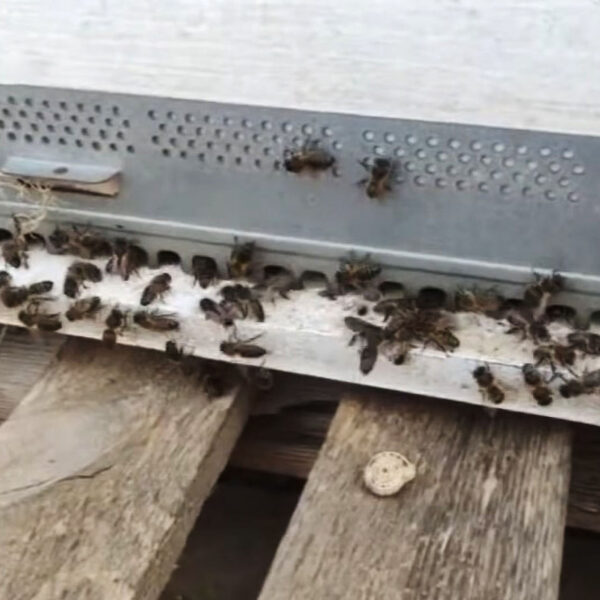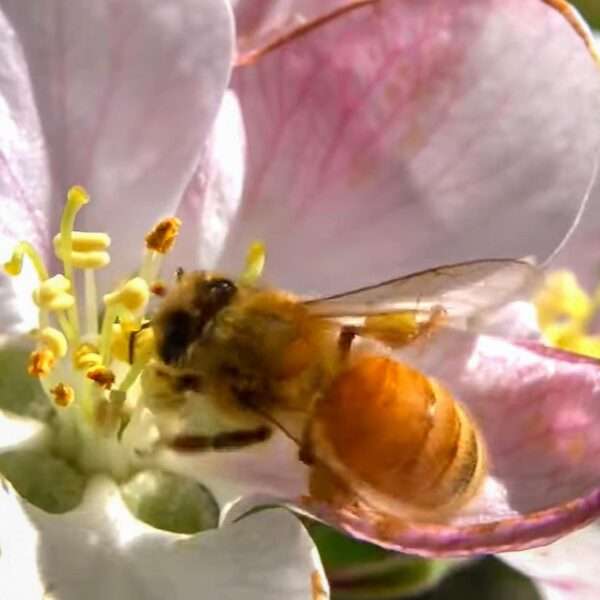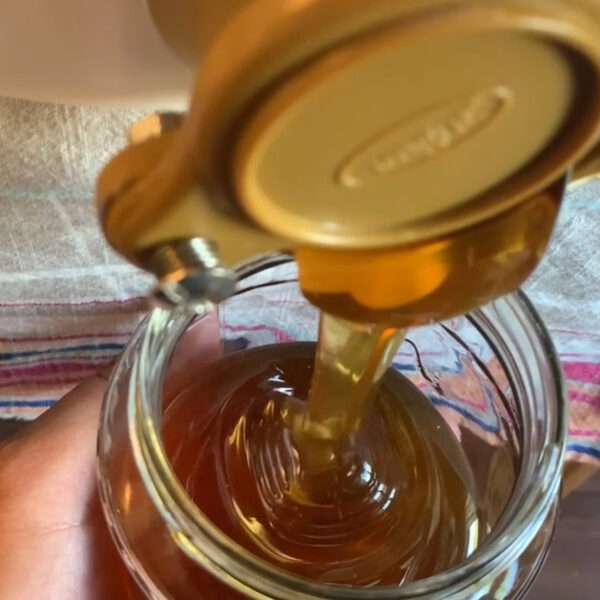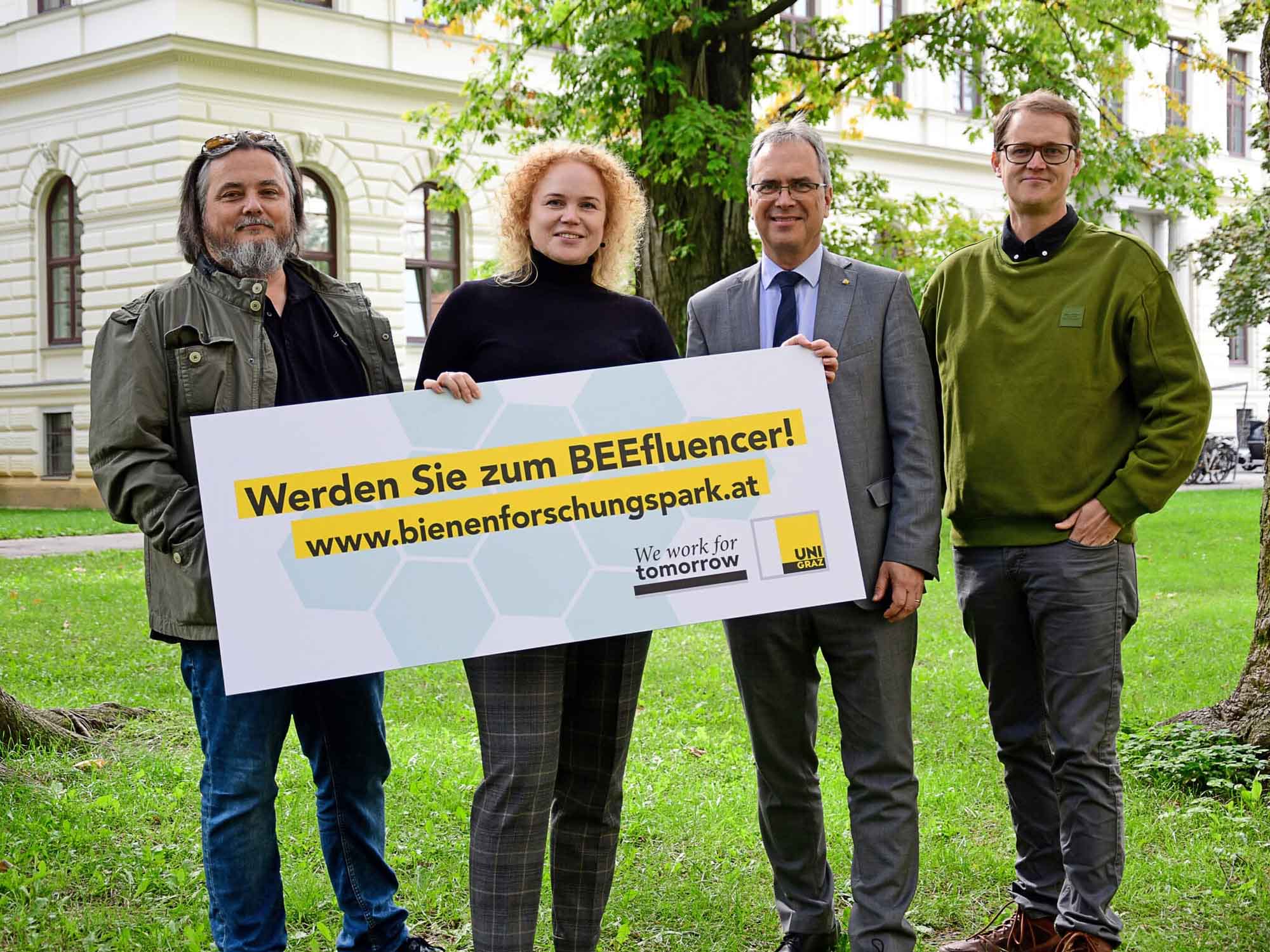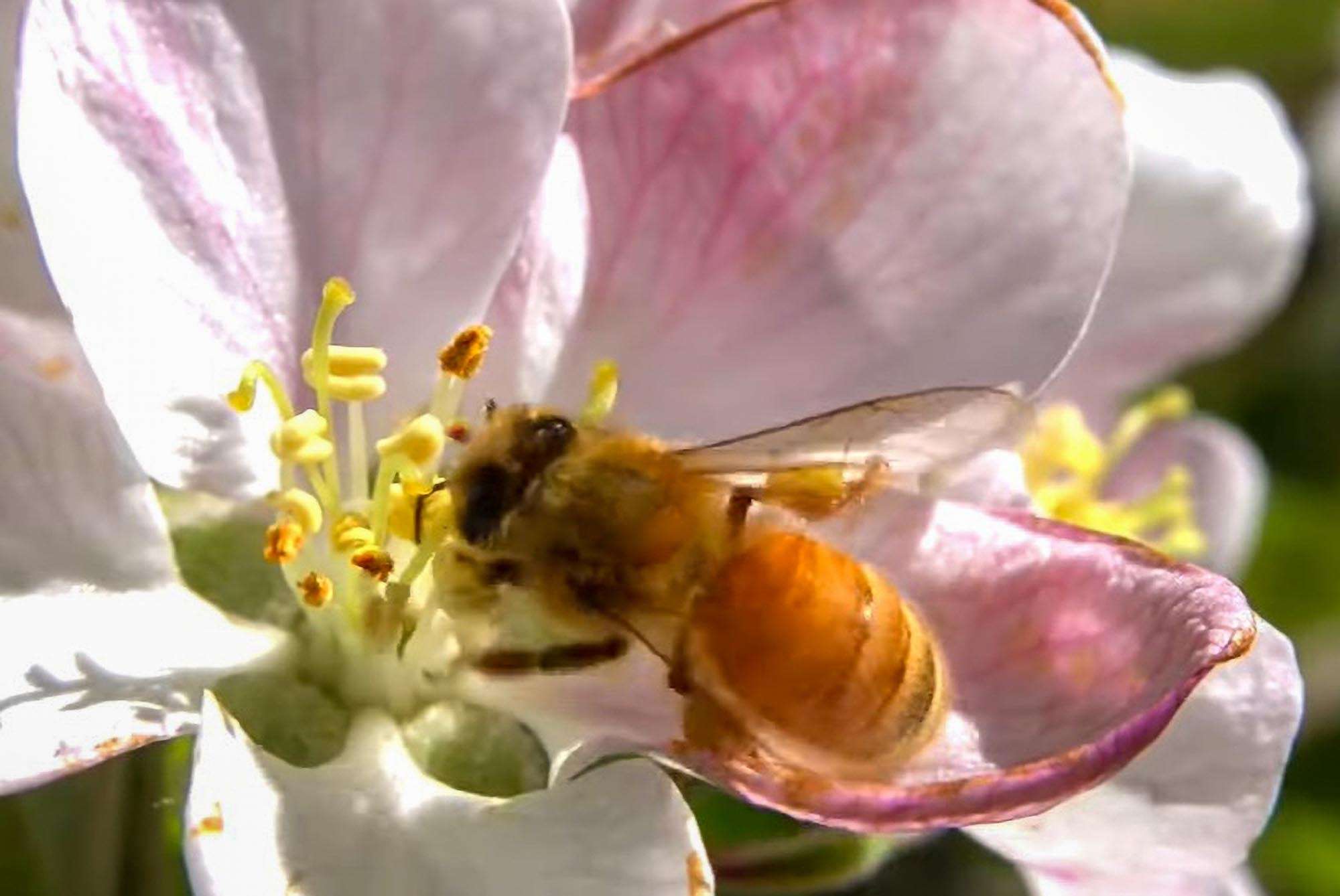A rare Australian native bee species focuses on a sophisticated system to ensure its survival, new research confirms.
The capricious masked bee (Amphylaeus morosus) – which builds its nests in the broken fern fronds of the rough tree fern Cyathea australis – sticks to a social system involving one highly reproductive female queen and non-reproductive female guards.
Dr Lucas Hearn is an entomologist at Flinders University in Adelaide, South Australia.
Dr Hearn and his study co-authors aimed at finding out how genes for sterility can persist when sterile individuals have no offspring.

He said: “We now know that problem is largely explained by kin selection, where workers can pass on copies of their genes via brothers and sisters instead of having their own offspring.”
Asked by science magazine Phys.org why sterile workers evolve in some kinds of animals such as bees and wasps but only rarely in others, he explained: “Part of the answer is the weird genetic system of Hymenoptera – ants, bees and wasps – where females are more closely related to their sisters than to their own babies, but much less related to their brothers.
“If female workers can rear their sisters instead of their own babies or their brothers, this can provide a genetic ‘edge’ that favours sterility.”
The Flinders University researchers – who published their study in the magazine Biology Letters – also found out that – when supported by helpful guards in their nests – queens lay more offspring.
Their investigation shows that these extra offspring are always males.
Dr Hearn told Phys.org: “This is great for the queen but not so good for the female guards because those extra offspring are her brothers and not closely related.”
“However, the more guards in a population, the more excess males are produced and the less genetic value they have.”
Dr Hearn – whose co-authors were Flinders associate professor Mike Schwarz and University of Adelaide associate professor Mark Stevens – concluded: “This latest research provides an explanation for that puzzle, namely altruistic guarding behaviour is only rewarding when it is rare. When it becomes common, all the excess male offspring become less valuable.”



